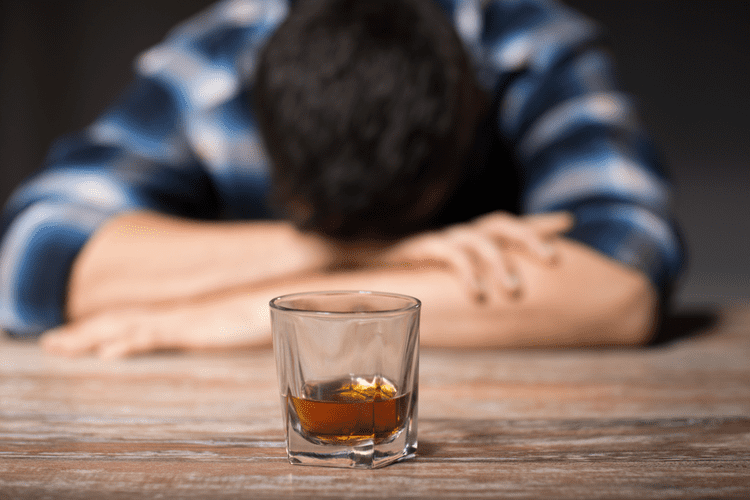Drinking After Being Sober: Exploring Abstinence vs Moderation in Long-Term Recovery Lantana Recovery: Addiction Treatment Rehab Center
We strive to create content that is clear, concise, and easy to understand. As the loved one of someone in recovery, there are ways you can help preserve their recovery and prevent drinking again after sobriety a relapse. Include the names of everyone on your medical and support teams and how to contact them. Even just the thought of drinking turns me into a very large toddler.
- Whatever the reason, there are serious consequences when someone with AUD drinks.
- As any substance abuse counselor will affirm, goal setting during recovery is critical.
- After six months of abstinence, the process of fat loss on the liver may be completed, resulting in a healthy liver.
Individuals who are sober but have an alcohol use disorder often feel the need to isolate themselves when they begin drinking again, to avoid shame from their loved ones and recovery community. Another sign of self-isolation is failing to follow through on plans and personal responsibilities. This is often obvious to the people in the individual’s life who support him or her the most in recovery.
Drinking After Being Sober: Exploring Abstinence vs. Moderation in Long-Term Recovery
Relapse prevention is a pivotal component of any treatment plan for alcoholism or any other substance abuse disorder. Some people feel that relapse prevention is about saying no right before they take a drink. In reality, the physical relapse stage is the most difficult to stop, and it’s a final stage rather than a standalone. If you experience a physical relapse, you might need to return to treatment or revisit your relapse prevention plan. Treatment didn’t fail, and you didn’t either, but a physical relapse can mean that your treatment plan may need to be adjusted or evolve with your changing needs. There are a lot of misconceptions about a relapse on alcohol or drugs.
- Her oldest son with husband Adam Shulman, Johnathan Rosebanks, turned 8 on Sunday.
- Many people think preventing a relapse means just saying « no » to a drink.
- It’s possible I won’t get so lost if I drink now…because I have a spiritual solution.
- Your relationships may become even more strained, as some friends and family members who considered you to be “fun” while you were drinking now perceive you unpleasantly.
- Most, if not all, people who have relapsed will say that during each relapse they learn something about themselves.
- Sometimes I mourn the fact that drinking—for me—is a horrible idea, but there is very little about my drinking career I actually miss.
Addiction to alcohol can have negative consequences, affecting every aspect of your life including work, school, and relationships. Fortunately, with treatment, you can end your addiction to alcohol and live a high quality of life in recovery. People who had severe addictions to alcohol or co-occurring disorders were less likely to successfully quit. The study was published in 2014 in the journal Drug and Alcohol Dependence.
Building a Relapse Prevention Plan
This hope may disrupt optimal recovery and keep the individual from moving forward in their recovery. Today, you will gain a deeper understanding of what relapse is, including different stages of relapse, causes and warning signs, relapse prevention strategies, and where you can find help after an alcohol relapse. It is possible to have an emotional relapse without having a single sip of alcohol. They eventually drink and feel a loss of control and a huge sense of guilt. The cycle then continues with alcohol used to numb the guilt, but eventually, the user’s guilt can become so unbearable that they stop drinking again.
If you find yourself in an emotional relapse, try to learn more about how you can practice self-care. Self-care might be as simple as adjusting your diet or getting more sleep. Self-care can also mean taking better care of your emotional needs. Take time out for yourself, treat yourself with compassion, and let yourself have fun.
Create a Relapse Prevention Plan
However, you may find that you need professional treatment and intensive care, such as through an inpatient treatment program. If you aren’t sure whether you need treatment or not, a provider can conduct an assessment to determine what level of care you need. Immediately after a relapse, you should contact your support network to assemble a game plan.

In summary, people with mild to moderate alcohol dependency issues may be able to return to drinking moderately. However, most seeking treatment for alcohol use disorders are unable to cope with controlled drinking. Because the relapse rate is high with alcohol addiction, it’s important to consider all options when beginning treatment. While it is heartbreaking when those in recovery https://ecosoberhouse.com/article/warning-signs-of-drug-use-and-addiction/ relapse, it is never too late to start over and get help. It is essential to acknowledge that when someone with an AUD starts drinking again, it is only prolonging the health issues, unhappiness, and instability that alcoholism causes for the drinkers and their loved ones. Having an understanding that drinking again only prolongs and worsens issues can help prevent the relapse.

